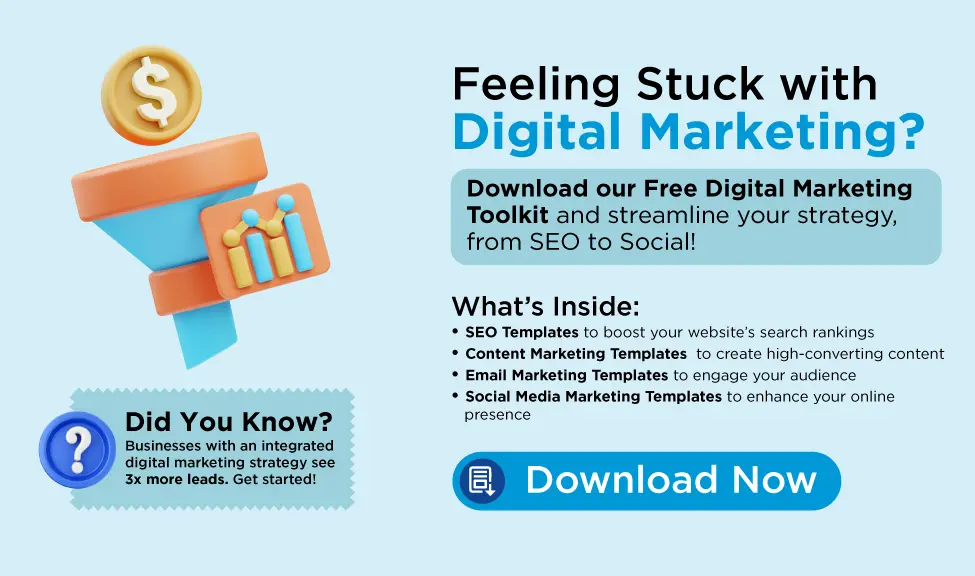10 Steps for Startup Founders to Build a Personal Brand on Social Media
Read MoreBlogs > Digital Marketing 22-10-2024
How to Use Behavioural Psychology to Drive Marketing Success
Behavioural psychology, which examines how thoughts, emotions, and social influences impact individuals’ choices, provides invaluable insights into these motivations. By tapping into these psychological principles, performance marketing companies can leverage powerful strategies that optimize campaigns, tailor messaging, and ultimately drive higher conversion rates.
Key Takeaways:-
- Psychological Triggers Drive Engagement: Techniques like scarcity, reciprocity, and social proof can significantly influence customer behaviour and boost conversions.
- Targeted Messaging Enhances Impact: Understanding your audience's motivations allows for tailored messages that resonate, increasing the effectiveness of campaigns.
- Data-Driven Adjustments Are Essential: Analysing KPIs like conversion and click-through rates helps refine strategies, ensuring campaigns continuously improve and deliver better results.
This blog delves into the various ways that integrating behavioural psychology into marketing strategies can significantly enhance customer engagement and increase sales. From understanding the psychological triggers that compel individuals to act to employing strategies that foster emotional connections with potential customers, the application of these principles can transform marketing efforts.

Understanding Behavioural Psychology in Marketing
Behavioural psychology provides insights into how consumers make decisions. By understanding the motivations and triggers behind customer actions, marketers can create strategies that resonate with their target audience. Here are some key principles of behavioural psychology relevant to marketing:
- Reciprocity: People feel compelled to return favours. Offering something valuable, such as a free trial or valuable content, can encourage customers to reciprocate by making a purchase or engaging with your brand.
- Scarcity: The perception of limited availability can create urgency. When consumers believe that a product is in short supply, they are more likely to act quickly to avoid missing out.
- Social Proof: Individuals often look to others to guide their decisions. Testimonials, reviews, and case studies can serve as social proof, helping potential customers feel more confident in their choices.
- Anchoring: The first piece of information a person receives often serves as a reference point. Marketers can use this to their advantage by presenting a higher initial price and then offering a discount, making the final price seem more appealing.
- Loss Aversion: People tend to prefer avoiding losses over acquiring equivalent gains. Highlighting potential losses from not using a product or service can motivate customers to take action.
Practical Applications in Performance Marketing
- Targeted Messaging: By understanding the psychological triggers of their audience, performance marketing companies can craft targeted messages that appeal to specific emotions or desires. For example, a marketing agency can use fear of missing out (FOMO) in campaigns promoting limited time offers.
- A/B Testing: Implementing A/B testing allows marketers to experiment with different messages and visuals to see which resonates best with consumers. For instance, a digital marketing agency could test headlines that evoke fear versus those that offer hope to determine which drives more conversions.
- Customer Segmentation: Segmentation allows marketers to tailor their messages to different groups based on their behavioural traits. Understanding the psychological profiles of customer segments can lead to more effective marketing strategies, ensuring that the right message reaches the right audience.
- Utilizing Behavioural Triggers: Incorporate behavioural triggers into digital marketing campaigns. For instance, email reminders can serve as nudges, encouraging users to return to their abandoned carts. Performance marketing companies can leverage this tactic to recover potentially lost sales.
- Creating Engaging Content: Content marketing that utilizes storytelling can evoke emotions and create connections. By sharing relatable stories, brands can engage their audience and encourage them to act, whether it's signing up for a newsletter or making a purchase.
Measuring Success
To ensure that behavioral psychology strategies are effective, it’s crucial to measure their impact systematically. Performance marketing companies must adopt a data-driven approach, utilizing a range of analytics tools to meticulously track key performance indicators (KPIs). These KPIs can include crucial metrics such as conversion rates, click-through rates, customer engagement levels, and even customer retention rates. By closely monitoring these metrics, agencies can gain valuable insights into how well their campaigns are performing and identify areas for improvement.
This data-driven analysis enables marketers to assess which psychological tactics are resonating with their audience and which ones may need adjustments or enhancements. For instance, if certain messages yield higher conversion rates while others fall short, agencies can refine their strategies accordingly, ensuring that they focus on the most effective techniques. Additionally, understanding the relationship between different KPIs can provide a holistic view of campaign performance, allowing for more informed decision-making and resource allocation. Ultimately, leveraging this data not only enhances the effectiveness of behavioral psychology strategies but also contributes to the overall success of marketing efforts by driving continuous improvement and delivering better results for clients.
Additional Read: CTAs for Digital Marketing Success
Conclusion
Incorporating behavioural psychology into marketing strategies offers a powerful way to drive success in an increasingly competitive landscape. By understanding the underlying motivations of consumers, digital marketing agencies and performance marketing companies can craft campaigns that resonate, engage, and convert effectively. Embracing these principles enhances customer relationships and contributes to sustainable business growth. As marketers continue to innovate, leveraging insights from behavioural psychology will be essential in developing marketing strategies that genuinely connect with audiences and deliver impactful results.






